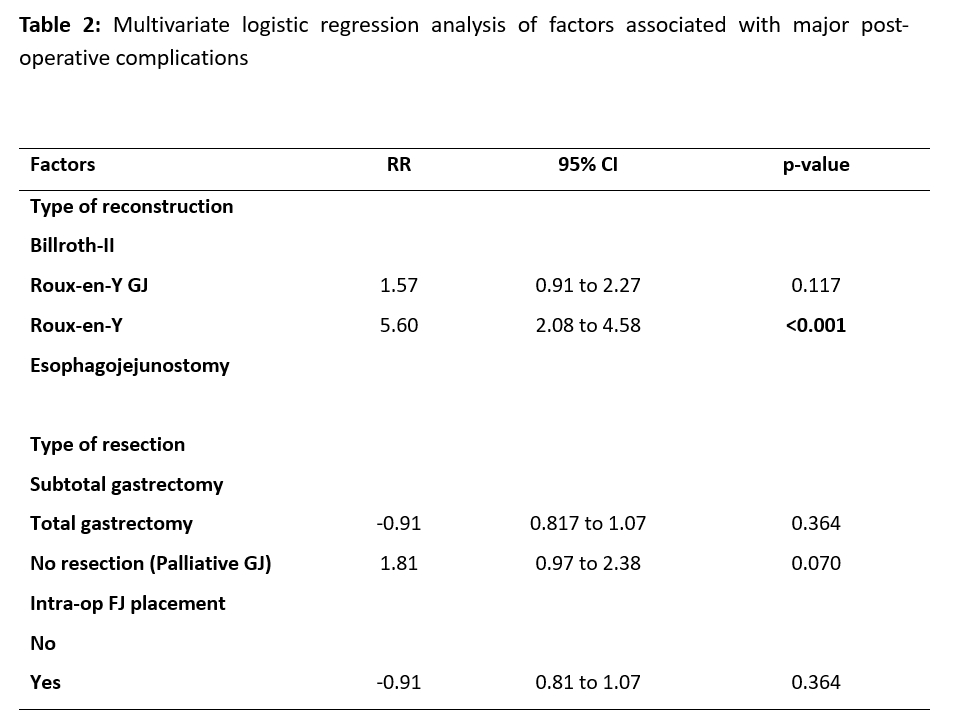THE ROLE OF SARCOPENIA IN PREDICTING THE POST-OPERATIVE MORBIDITY AND PERI-OPERATIVE MORTALITY IN PATIENTS UNDERGOING ELECTIVE SURGERY FOR GASTRIC CANCER
Sinduja Ramanan*3, Vikram Kate3, Amaranathan Anandhi3, Deepak Barathi1, Thulasingam Mahalakshmy2
1Department of Radiodiagnosis, Jawaharlal Institute of Postgraduate Medical Education and Research, Pondicherry, India; 2Department of Preventive and Social Medicine, Jawaharlal Institute of Postgraduate Medical Education and Research, Pondicherry, India; 3Department of Surgery, Jawaharlal Institute of Postgraduate Medical Education and Research (JIPMER), Pondicherry, India
Introduction: Some studies have shown that patients with sarcopenia undergoing surgery for gastric cancer show an increase in the post-operative morbidity and mortality. However, many of these were retrospective. Hence, this prospective study was carried out to assess the effect of sarcopenia and other risk factors on the post-operative morbidity and peri-operative mortality of patients undergoing elective surgery for gastric cancer.
Methods: This was a prospective cohort study comprising a single group of patients undergoing elective surgery for gastric cancer carried out in a tertiary care centre. Patients diagnosed with gastric cancer underwent contrast enhanced computed tomography pre-operatively. Patients were considered sarcopenic according to the cut-off used by Zhuang. Patients were planned for surgery ranging from gastrectomy with curative intent, to palliative gastrojejunostomy. Post-operative complications including death were noted for 30 days following surgery, and graded according to the Clavien-Dindo classification. The role of sarcopenia and other risk factors on the post-operative outcome of patients was noted.
Results: A total of 100 patients were included in the study between September 2018 and July 2020. There was a high prevalence of sarcopenia (62%) among patients with gastric cancer who underwent elective surgery. However, sarcopenia was not associated with any post-operative complication (p > 0.05) including 30 day mortality (p=0.155), prolonged post-operative hospital stay (p=0.876), or 30-day re-admission rate (0.524) (Table 1). Among the variables considered, only esophagojejunostomy (p < 0.001) was associated with a poor post-operative outcome (Table 2). Further, other variables such as TNM stage, type of resection, extent of node dissection, combined organ resection, intra-op FJ placement were not associated with a poor post-operative outcome.
Conclusion: The present study showed that there was a high prevalence of sarcopenia (62%) in patients undergoing elective surgery for gastric cancer. However, it did not adversely affect the post-operative outcome. Among the variables considered, only esophagojejunostomy was associated with a poor post-operative outcome.
Table 1
Table 2
Back to 2021 Abstracts
